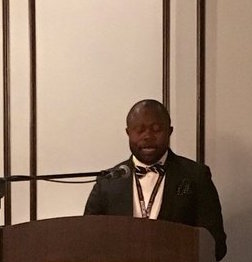By Staff Reporter
The Pan-African Parliamentary (PAP) Committee on Rural Economy, Agriculture, Environment and Natural Resources recently came up with this draft model law on food security and nutrition in Africa whose main objective is to strengthen and consolidate positions on food security and nutrition, as well as the right to adequate food.
The model law puts parliamentarians at the forefront of food security’s political and legislative agendas at both regional and national levels.
“The purpose of the model law is to guide or serve as a source of inspiration for countries that aim to develop national or sub-national legislation on the right to adequate food and food security and nutrition,” said Clement Mavungu, a PAP’s legal officer during a workshop that took place at the just ended Pan African Parliament’s Sitting of Committees held in Midrand, South Africa.
“Countries may make use of the model law in elaborating a framework legislation, primary legislation or secondary legislation that covers that covers all or some aspects of Food Security and Nutrition.”
Mavungu also spoke on the scope of the law mentioning that it shall govern issues relating to food security and nutrition.
He also said it shall include essential elements of food security and nutrition that may be governed by by one or more legislation.
“The model law shall govern issues related to food security and nutrition, including the availability, accessibility, stability and utilisation of food and the realisation of the right to adequate food.
“It shall include essential elements of FNS that may be governed by one or more legislation, including the definition of rights and entitlements, duties and responsibilities at all levels, enabling environment for the production, distribution and consumption of safe and nutritious food,FSN governance structures and accountability mechanisms,” he said.
The model law, which stems out of earlier on workshop facilitated by PAP and FAO which took place at the same venue in March this year, puts emphasis on themes that include; legislating for the right to adequate food; nutrition and sustainable food systems for healthy diets; gender and social policies; access to and control of productive resources; responsible investments in agriculture and food systems; budgeting to achieve zero hunger and partnering for resource mobilisation.
The model law is set to be presented to the plenary in October before it is adopted.
